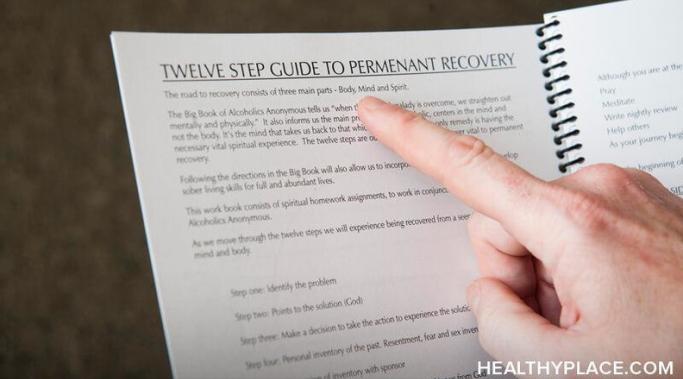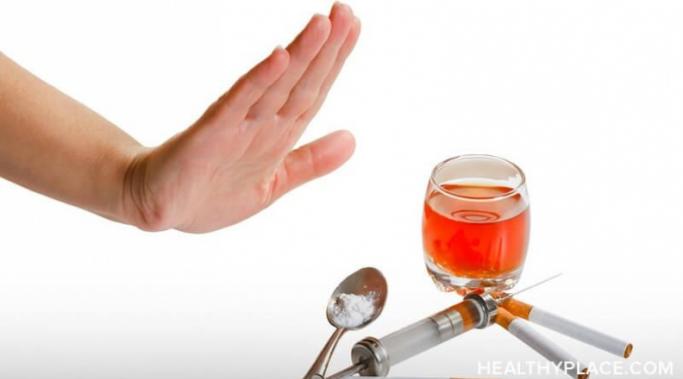As we start the New Year, I thought it would be a good time to address some of the things that active addiction steals from your life. Addiction is a thief of many things, and it is a horrible, ugly place to be. I know, because I have been there. It's a place filled with darkness, hopelessness, and despair, and given enough time, addiction will steal everything from you. During my drinking days, addiction stole so many things that little by little, my life became devoid of everything that I cared about.
Debunking Addiction
You can stay sober on New Year's Eve even though it is probably the biggest holiday of the year for parties. Whether it's simply champagne toasts at midnight or full-on drinking for the whole evening, it's a night known for alcohol consumption. For those of us in addiction recovery, it can seem like something to dread rather than celebrate. But, if you are proactive about how you handle staying sober on New Year's Eve, you can still have a good time and keep your sobriety intact.
No parent wants to think about their teens experimenting with alcohol. Unfortunately, it happens all too often. Statistics show that about one-third of high school students have consumed alcohol within the last month and that 17 percent of them rode with a driver who had been drinking.1 The average age that girls have their first drink is 13, while for boys, it's 11. I fit in with those teen alcohol statistics, as I had my first drink of alcohol at age 14. These facts are pretty frightening for parents of teens, who may wonder what they can do to prevent their kids from trying alcohol. But to help kids abstain from alcohol until they are older, it's important for parents to understand why teens experiment with alcohol in the first place.
It's no secret that active addiction can lead to depression and that depression sometimes leads to suicide. Many of us who are in recovery suffered from both addiction and depression before seeking help. And, unfortunately, there are many addicts who never made it into recovery because they ended up taking their own lives. The relationship between addiction and depression is bi-directional, which means that substance abusers are more likely to also suffer from depression, and vice versa. This was the case for me during my active alcoholism, and it led me to have suicidal ideations frequently, and even to an attempt to take my own life.
You've likely heard the saying, "once an alcoholic, always an alcoholic." It's the phrase that someone utters when the alcoholic in his or her life goes on yet another bender or relapses after white-knuckling it to stay sober. It's usually said with frustration, contempt, or even worse, pity. I used to hate to hear the phrase, especially in my early attempts at recovery, when I struggled unsuccessfully to stop drinking. To me, it meant that my failure at sobriety was inevitable - that I would continue to return to the very thing that was destroying my relationships, my spirit, and my life, no matter how hard I tried to control it. Was I just destined to always be an alcoholic?
You can learn self-awareness skills to help you recover from addiction. Being aware of your own triggers is an important part of successful addiction recovery. In fact, self-awareness overall is essential for recovery from drug or alcohol addiction. You may be wondering what does it actually mean to be self-aware? What are self-awareness skills? Generally speaking, those who have a good grasp on self-awareness have a realistic perception of who they really are, including aspects like their personal habits and behaviors, strengths and weaknesses, and their mental and emotional tendencies. This awareness will help you deal with the triggers to use, drink, or return to old behaviors that will likely lead you there. Self-awareness skills can be learned, and you'll find some of them in this post.
It’s crucial that you have an addiction relapse prevention plan in place after you complete an addiction treatment program. When you go to treatment, you will be provided with therapy, support, education, life and coping skills and other potentially life-saving treatments to help you get started in recovery. While all of those things are meant to prepare you for going back home and getting on with your life, it can be difficult once you are there and that’s where a solid relapse prevention plan can help.
Alcohol abuse affects women differently than it affects men, even when they drink smaller amounts. There are more health risks for women, including liver disease, breast cancer, and brain damage. While women are just as likely as men to be successful with sobriety, women who abuse alcohol may have more challenges finding accessible treatment for alcohol abuse and addiction.
It's important to know how to identify the warning signs of addiction relapse when you have a loved one who is in recovery from addiction. There are some telltale signs that a person in recovery is moving toward an addiction relapse, even before they actually use drugs or drink again. When you are able to identify those signs, you may be able to help your loved one avoid relapsing and get his or her feet firmly planted back in recovery.









